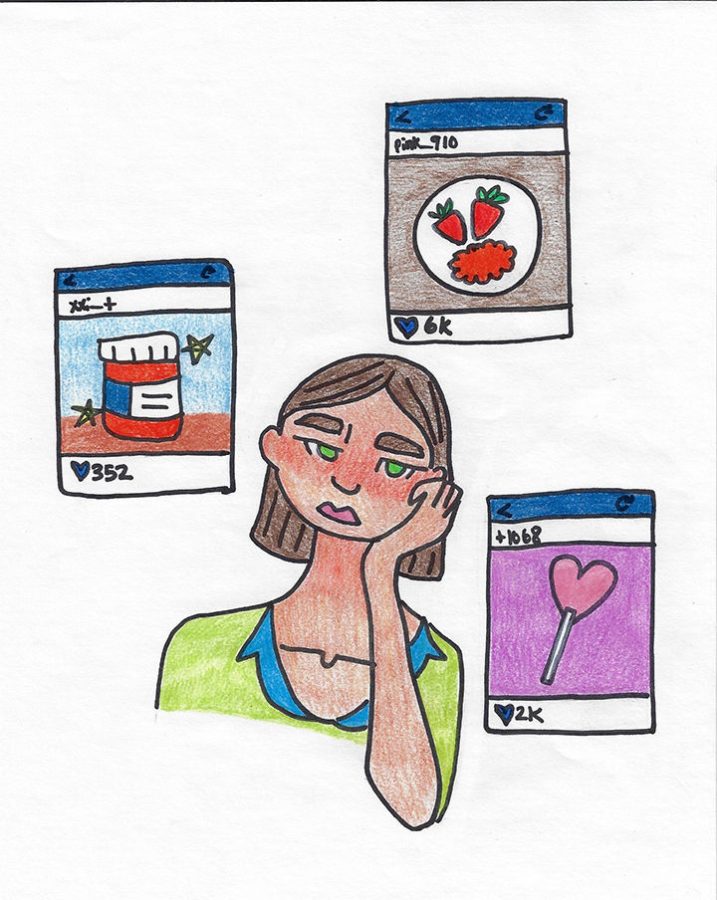Social media diet trends can promote unhealthy eating habits
March 8, 2019
Liking, retweeting, sharing, swiping and dieting.
One of these actions is not like the others, but it is trending across social media and persuading users to adopt poor diet practices, said Emily Baker, a registered dietitian and nutrition professor at Kent State.
Social media users will often scroll through their feeds and see posts from accounts dedicated to selling diet solution products or sharing diet secrets. Celebrities and Instagram influencers also share trends that include juice cleanses and cutting out food groups like sugars or carbohydrates.
While there is nothing wrong with looking for diet help online, people should be cautious about the information they see on social media because it may not be coming from a credible source, Baker said.
“Who is the person? Are they qualified? The person posting that information might not be an expert in nutrition,” she said.
Users scrolling through Instagram may see before and after pictures of a person who went through a significant weight loss, and the caption will contain the “secret” of what they did. It is easy for users to see this and assume the diet will work for them as well, which Baker said is a problem.
“It is important to be aware of the fact that there is no one diet pattern that fits everybody,” she said. “While people may be inclined to believe before and after photos, they are not seeing the background or what is truly happening, such as how much exercise the person is doing or whether Photoshop went into creating those pictures.”
In addition, social media diets can promote unrealistic lifestyles, according to an article published by Shape.com in January 2018. The article explains that many of the diets glorified on social media, such as extreme cleanses that completely remove a nutrient from one’s meals and smoothie bowls that are bigger than a serving size, are not as healthy as they seem.
Not only are these trends unhealthy, but they are also potentially harmful, Baker said. Limited food group diets and limited nutrient diets cannot be lived on long-term.
The best places to find credible health and diet advice online are registered dietician blogs and social media accounts that are run by professionals who want to share their expertise. Baker also recommends students follow the MyPlate guidelines created by the U.S. Department of Agriculture to provide healthy eating styles, which includes eating balanced proportions of the various food groups.
“Eating in moderation and utilizing all the food groups has stood the test of time,” Baker said.
Jessica Skitzki covers health and fitness. Contact her at [email protected].

















